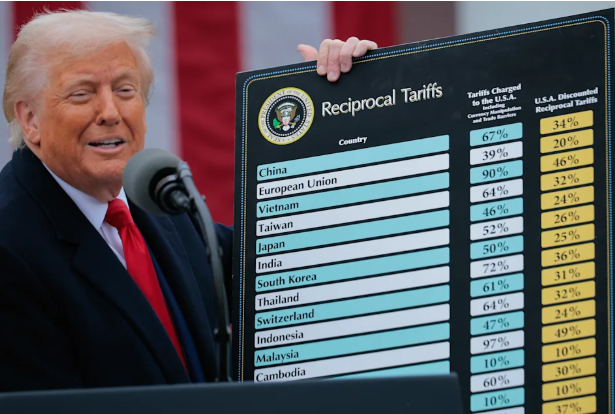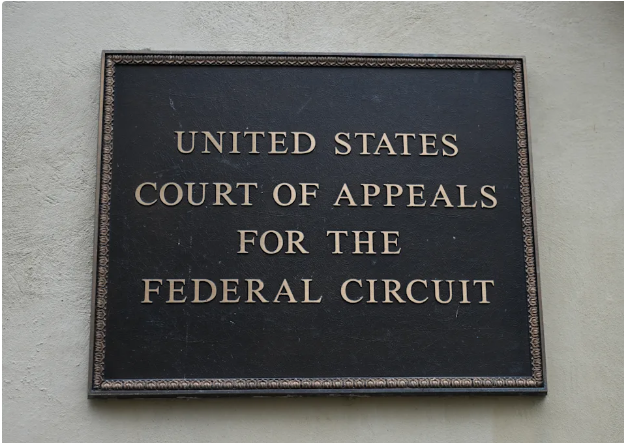Small business importers and the US Justice Department clashed Thursday over whether President Trump has the authority to impose his "Liberation Day" tariffs just hours before those duties were scheduled to take effect for countries around the world.
The confrontation took place in Washington, D.C. before a panel of 12 judges at the Circuit Court of Appeals for the Federal Circuit, and it did not produce an immediate ruling.
But it did reveal that some judges have some skepticism of the Justice Department’s arguments that the president can unilaterally impose wide-ranging, global tariffs by invoking a law enacted in 1977 to protect the US from international threats, while others found support for the claim.
Read more: 5 ways to tariff-proof your finances
That law, known as “IEEPA” — the International Economic Emergency Powers Act — authorizes the president to “regulate” international commerce after declaring a national emergency.
The panel — composed of eight judges appointed by former Democratic presidents and four appointed by Republican presidents — spent considerable time asking the lawyers what Congress meant when it wrote in IEEPA that presidents have authority to “regulate importation.”
“IEEPA doesn't even say ‘tariffs.’ It doesn't even mention it,” one judge said.

“What does ‘regulation of importation’ mean?” another judge asked. And “If ‘regulate’ doesn’t cover tariffs, what does it cover?”
A lawyer for one of 12 states joining the small businesses in their challenge of Trump’s tariffs, Brian Simmonds Marshall, said he thought the phrase was meant to permit the president to order quotas that limit the number of imported goods, and potentially for the president to order import licensing requirements and fees.
But “the one thing that I think it excludes for sure is tariffs,” Simmonds Marshall added.
But Trump’s Justice Department Assistant Attorney General Brett Shumate said that IEEPA doesn’t have such limits and that Congress would have understood that when it wrote the law.
And while IEEPA offers the president broad power, Shumate said that power is not unlimited because it is available only during a national emergency, and Congress can step in and overrule the president.
“The primary rule is for Congress to check the president if there is an abuse of the IEEPA tariff authority,“ Shumate said.
Trump and Nixon
The judges also questioned if a Nixon-era case that addressed IEEPA’s predecessor law, known as the Trading with the Enemy Act (TWEA), put limits on what a president can do under IEEPA.
Trump’s team has been citing that 1970s case as proof that the president’s global tariffs should be allowed to stand in court.
Roughly five decades ago, 10% duties unilaterally imposed by the former President Nixon as part of a set of economic measures dubbed the "Nixon shock" were challenged in court in much the same way as Trump's 2025 tariffs have been.
A Japanese zipper-making business called Yoshida International sued, saying Nixon lacked the power to set the 10% tariff on foreign goods under three different laws that the government gave as justification: the Tariff Act, the Trade Expansion Act, and the Trading with the Enemy Act (TWEA).
The most controversial justification was the TWEA, a predecessor law to the 1977 act that Trump cited this year as a basis for his multiple tariffs.
A US Customs Court initially sided with the zipper importer, holding that none of the three laws was adequate authority for the duty. Yet on appeal, Nixon's tariffs were upheld.

The court that upheld the tariffs reasoned that "neither need nor national emergency" justified Nixon's tariff because Congress had not delegated such power and because the authority was "not inherent" in his office, but that TWEA carved out enough power to regulate importation during an economic emergency.
One of the judges hearing the Trump case on Thursday cited that 1970s case and said, “It seems pretty clear to me that Yoshida is telling us that ‘No, the president doesn't have the authority to rewrite the Tariff Schedule.’ In this case, that's what the president is trying to do.
A lawyer for the challengers to Trump’s duties argued that by adopting IEEPA in 1977, Congress ratified the high court’s holding in Yoshida, which he said allowed the president to impose “modest, bounded, temporary tariffs” but did not sanction unbounded, permanent duties.
'Good luck in America's big case'
The lawyers and judges also sparred over whether the president’s declared national emergency met IEEPA’s requirements of unusual and extraordinary, and Trump found some support during this discussion.
One judge agreed the president did meet these requirements by identifying underlying causes contributing to the threat, including trade deficits, tariff barriers, and a lack of reciprocity in US trading relationships.
That, this judge said, contributed to a spike in the US’s trade deficit and atrophied domestic production capacity, including in defense industrial bases.
“How does that not constitute what the president is expressly saying is an extraordinary threat?” the judge asked the challengers.
But another judge countered, “How can a trade deficit be an extraordinary and unusual threat when we've had trade deficits for decades?”
Lawyers for the administration argued that the deficit becomes extraordinary and unusual once it reaches a point where it threatens the resources that are foundational to US national security.
Trump was clearly paying attention to the courtroom developments.
“To all of my great lawyers who have fought so hard to save our Country, good luck in America’s big case today,” Trump wrote Thursday morning on Truth Social.
“If our Country was not able to protect itself by using TARIFFS AGAINST TARIFFS, WE WOULD BE ‘DEAD,’ WITH NO CHANCE OF SURVIVAL OR SUCCESS. Thank you for your attention to this matter!"”